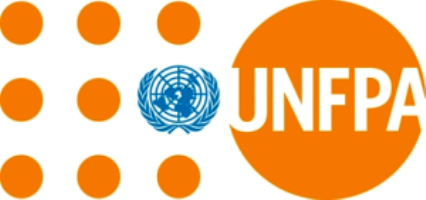The United Nations Population Fund (UNFPA) has reaffirmed its critical role in promoting sexual and reproductive health and rights across West and Central Africa, tackling challenges such as maternal mortality, unmet family planning needs, gender-based violence (GBV), and the vulnerabilities of women and girls in humanitarian crises.
Alian Akpadji, UNFPA Resident Representative for West and Central Africa, speaking on behalf of Regional Director Sennen Hounton during the 5th Lake Chad Basin Governors’ Forum in Maiduguri, highlighted the region’s fragile health systems and the need for strengthened interventions to ensure sustainable development and human rights.
Key areas of UNFPA’s work
1. Reducing maternal mortality
UNFPA is committed to expanding quality maternal healthcare, focusing on: Strengthening antenatal, childbirth, and postnatal services, Supporting Emergency Obstetric and Newborn Care (EmONC) to address life-threatening pregnancy and delivery complications, Training midwives, nurses, and healthcare workers to improve skilled birth attendance, especially in underserved communities, and Advocating for Universal Health Coverage (UHC) to ensure every woman has access to life-saving maternal health services.
2. Family planning and reproductive health
UNFPA is enhancing access to modern contraceptives and family planning counselling to prevent unintended pregnancies and empower women to make informed choices.
The agency also: Strengthens supply chains to ensure uninterrupted access to contraceptives and reproductive health commodities, and Promotes youth-friendly sexual and reproductive health education to address early pregnancies and sexually transmitted infections (STIs).
3. Combating gender-based violence (GBV)
To protect women and girls from GBV, UNFPA: Implements GBV prevention and response programs, including safe spaces, psychological support, and legal assistance for survivors, Works with governments and communities to end child marriage, Female Genital Mutilation (FGM), and other harmful traditional practices, and Supports law enforcement and justice systems to hold perpetrators accountable.
4. Strengthening health systems and humanitarian response
UNFPA is enhancing the capacity of national health systems to deliver sexual and reproductive health (SRH) services, even in crisis settings.
The efforts include: Providing lifesaving reproductive health services in humanitarian crises, including safe childbirth kits, emergency contraception, and post-rape care, Deploying mobile health clinics to reach displaced populations and remote communities, and Advocating gender-responsive policies to prioritize the needs of women and girls in humanitarian and post-conflict recovery efforts.
5. Gender equality and women’s empowerment
UNFPA is supporting women’s economic empowerment by linking reproductive health services with education, vocational training, and financial literacy programs.
The agency also: Engages faith-based and traditional leaders to shift social norms and promote gender equality, and Campaigns for gender-responsive policies to ensure women’s voices are included in decision-making at all levels.
6. Data and innovation for better health outcomes
UNFPA leverages data and technology to enhance reproductive health services by: Conducting demographic surveys to inform policies on health, education, and economic planning, Using digital health solutions and mobile platforms to provide reproductive health information and services, and Strengthening Civil Registration and Vital Statistics (CRVS) to ensure every birth is recorded, facilitating access to healthcare and social services.
UNFPA’s impact in the region
Through partnerships with governments, civil society, youth groups, and international organizations, UNFPA has contributed to: Increased contraceptive prevalence rates and reduced unmet family planning needs, Lower maternal mortality rates through improved access to quality maternal health services, Stronger legal protections for women and girls due to increased awareness and advocacy against GBV, and More inclusive policies ensuring greater access to reproductive health education and services for youth and adolescents.
Reaffirming UNFPA’s commitment, Akpadji emphasized that the agency will continue working to ensure vulnerable and displaced persons receive the support they need for a healthier and more empowered future.


